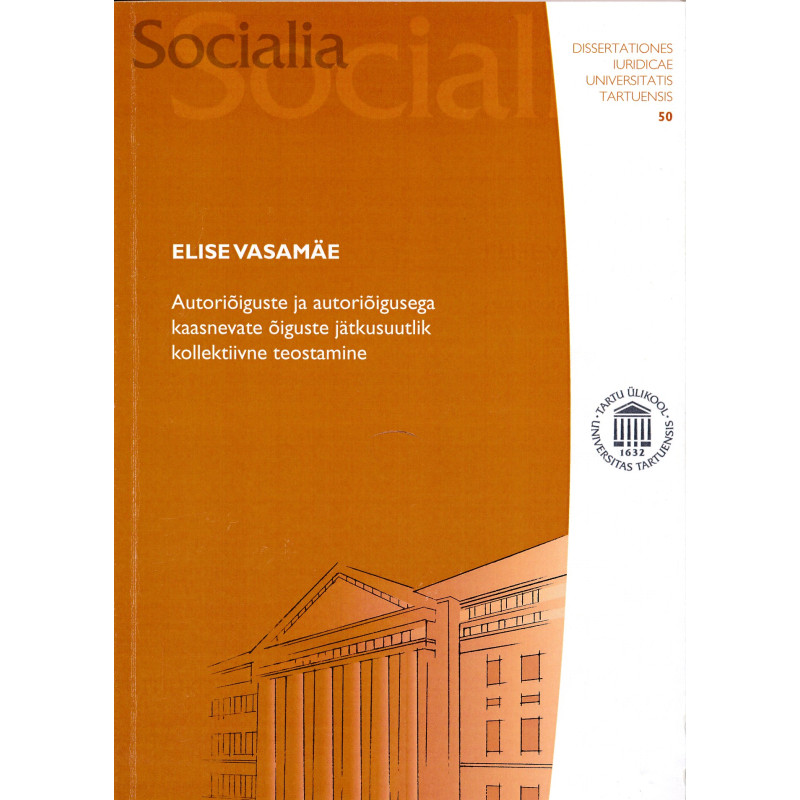



Tartu : Tartu Ülikooli Kirjastus, c2014
307 p.
Dissertationes iuridicae Universitatis Tartuensis, 1406-6394 ; 50
ISBN: 9789949326013
Softcover in good condition
The author of this thesis has researched the joint use of the two types of intellectual property – copyright and related rights (hereinafter as rights) – by the right holders, i.e. the collective management of rights. The author undertook the task to examine which models of the collective management of rights would secure sustainable development in Estonia, by considering the interests of all copyright interest groups. The author came to the conclusion that the extended collective management of rights would be the most optimal solution for Estonia. In regard to this model, a collecting society only grants one license to the users of rights, and it collects and distributes the fee received from the users of rights between the right holders of the same category. With a single license agreement, the user of rights also obtains the authorisation to use the rights of those right holders who are not represented by the organisation. At the same time, the interests of authors, performers and producers of phonograms are protected, as they can waive from such a collective management of rights, should they wish to do so. The extended collective management of rights proceeds from the principle that the exploitation of rights should be possible as long as it has not been explicitly prohibited by the right holders. The author makes the proposition that the extended collective management of rights should be established in fields where the individual management of rights is not sustainable. The law would not be able to comprehensively foresee all such fields, as the continuous development of technologies leads to the need to initiate amendments to the law. A flexible and novel solution for Estonia would be to establish a general extended collective licensing. Similar regulations have been adopted in Denmark (2009) and Sweden (2013). The collective management of rights has become very topical in the European Union in the past decade. On 26 February 2014, a new Directive 2014/26/EU of the European Parliament and of the Council on the collective management of copyright and related rights and the multi-territorial licensing of rights in musical works for online uses in the internal market was adopted. The directive is the first in the European Union to unify the provisions that govern the collective management of rights. In addition to the initiative of the EU institutions, academic circles also have an important role. Leading copyright professors have worked out the basic principles of a possible reform of copyright in the EU, under which a proposition has been made to establish the extended collective management of rights in the member states of the EU. This would provide the means to overcome the problems arising from the territorial nature of copyright that hinder the development of the single internal market. The problems related to the principle of territoriality were also focused on in this research. The author of the thesis has made propositions for the amendment of the Estonian Copyright Act, and proposed several new terms in the Estonian language. In 2012, a working group for the codification of intellectual property was established by the Ministry of Justice and was also given the task of drafting a new Act of Copyright and Related Rights. The author of this doctoral thesis had the opportunity to implement the conclusions of her research in that draft and suggest wording for the provisions of the collective management chapter of the new draft law. This thesis includes a discussion on a number of theoretical issues, the practical output of which is both in legislative drafting and in legal practice. For example, the author focused on problems related to the lending of phonograms from digital libraries and found that the rules that govern the lending of phonograms should be amended; otherwise, the access of the public to phonograms is unreasonably restricted.